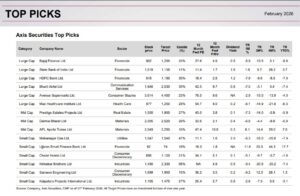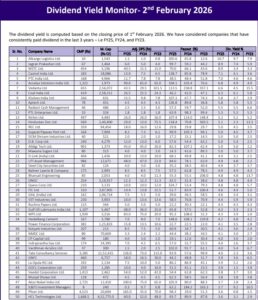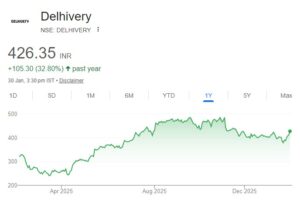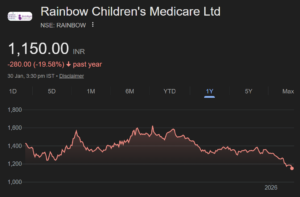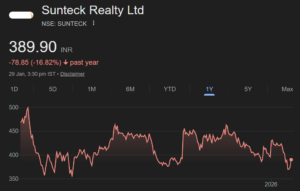Rakesh Jhunjhunwala portfolio strategy can give lessons to even experienced investors and shows how having a concentrated portfolio can benefit investors. He also shows how, if an investor is not sure of the prospects of a stock, he should buy a small part of it and keep a close eye on the stock before deciding whether it is worth further investment or not.
We studied Rakesh Jhunjhunwala‘s portfolio in detail and made the astonishing discovery that nearly 68% of the portfolio was made up of four stocks in which the Oracle of Mumbai had full conviction. The rest of the portfolio was made up of stocks in which he was unsure of where they were headed.

Rakesh Jhunjhunwala‘s latest purchase of the shares of Development Co-operative Bank (DCB) also indicates the same strategy of buying a small portfolio to test the stock’s prospects.
The master investor now reveals another important technique in his portfolio management strategy. That of “Water the flowers and cut the weeds“.
Cut the weeds strategy (get rid of non-performer stocks)
Rakesh Jhunjhunwala is not a portfolio-churner. Unlike most amateur investors who are so stimulated by day-to-day happenings that they keep churning their portfolio for the sake of something to do, Rakesh Jhunjhunwala is happy to sit like a sage – motionless on his stocks – for years on end. At the same time, he is not married to his stocks and has no emotional atachment to his stocks. If he feels that a stock is over-valued or that it has no growth prospects, he does not hesitate to ruthlessly throw it out of the portfolio.
Now, the Financial Chronicle has revealed that Rakesh Jhunjhunwala has slashed his holdings in nine non-performer stocks. These non-performers, whose names every investor is waiting with bated breath to hear, include Adinath Exim Resources, Agro Tech, Geometric, IFCI, Kajaria Ceramics, NCC, Punj Lloyd and Srei Infrastructure. Financial Chronicle did some fine detective work to unravel that Rakesh Jhunjhunwala’s name does not appear in the investor category that holds more than one per cent at the end of March quarter. What is still a mystery is whether Rakesh Jhunjhunwala still holds some shares in these companies or has completely exited the counters.
Rakesh Jhunjhunwala‘s stock pruning strategy does not come as a surprise to us because we had already identified these stocks as his “low-conviction stocks” or as his “time-pass stocks“. Several other stocks like Geojit BNP Paribas Financial Services, McNally Bharat, Praj Industries, Prime Focus and Provogue (India) could also find themselves on the chopping block if they do not get their act together and perform to Rakesh Jhunjhunwala‘s exacting standards.
Water the Flowers strategy (increase the holdings of performing stocks)
Rakesh Jhunjhunwala‘s full conviction stocks Lupin & Titan fully deserve the respect that he bestows upon them. Rakesh Jhunjhunwala rightly calls these stocks his crown jewels because they have been incredible multi-baggers and have contributed heavily to his billionaire status.
Rakesh Jhunjhunwala has rewarded these stellar stocks by reposing more faith in them. He increased his holdings by buying 7.5 lakh shares of Lupin and 5.22 lakh shares of Titan. With this his holdings in Titan Industries has soared to Rs 1707.16 crore while his holdings in Lupin has zoomed to Rs 620.60 crore. His other top portfolio holdings are Crisil (Rs 361.02 crore), A2Z Maintenance and Engg Services (Rs 346.75 crore), Aptech (Rs 164.06 crore) and Rallis India (Rs 162.50 crore). The master’s total holding of more than one per cent stake in 34 companies in December 2010 quarter was worth about Rs 4,700 crore ($1.04 billion) which by the end of the March quarter had slumped to about Rs 4,120 crore ($930 million) thanks to the relentless bear attack on the bourses
Rakesh Jhunjhunwala‘s lesson to investors
One has to pay close attention to what the Oracle of Mumbai is saying and doing. The message from Rakesh Jhunjhunwala is that firstly investors must carefully think out their investment rationale before committing money to a stock. If the investor is not sure, he should commit relatively small amounts to the stock. However, if the investor has conviction in the stock, there is no point in investing small amounts in the stock. Instead, one should make the stock a part of the core portfolio by investing serious money in it.
The second lesson from the master investor is that while one should not mindlessly churn a portfolio, one should not sit on one’s haunches and wait for Godot either. An investor must be well informed and act decisively. A portfolio which has ceased to be efficient requires to be rebalanced. This can be done either by selling stocks that are over-valued and investing in under-valued stocks and by getting rid of non-performer stocks and investing that money in performer stocks. This is the important lesson from Rakesh Jhunjhunwala.
